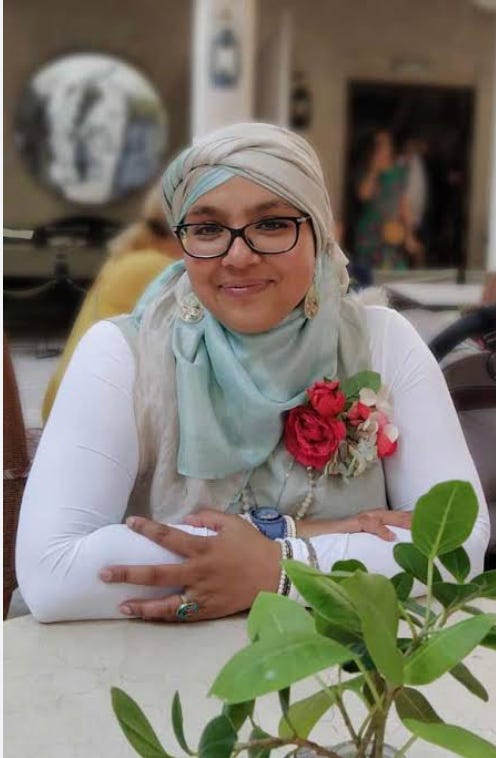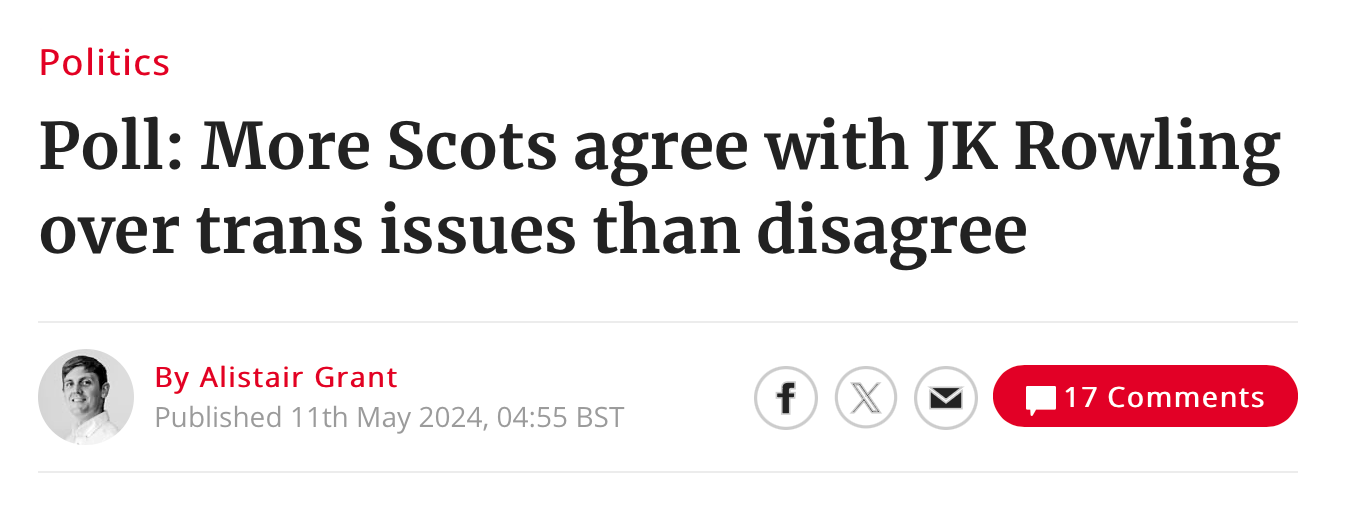The Strange Case of 'Terfs', Fascists, Author Cancellations, Book Blacklisting and Literature Alliance Scotland
As a writer, feminist and literary events organiser in Scotland I’m often sent information someone thinks might interest me. This week it was a link to Guidance for Organisations, including Bookshops and Book Festivals. This guidance, commissioned by one of Scotland’s leading and most powerful publicly-funded literary organisations, Literature Alliance Scotland (LAS), is currently available via a link on their website. Written in March 2024, the link has been added to the website ‘Resources’ page on 7th May, 2024.
Just to be clear from the start here. It is not an issue at all that LAS are providing guidance to organisations, nor that its guidance is, in this case, with regard to trans people, but the content of the guidance raises several extremely serious and concerning issues.
As a registered charity funded by Creative Scotland and the Lottery Fund, Literature Alliance Scotland serves all the people of Scotland. Point 2 of its constitution claims that it will ‘encourage awareness of contemporary literature and oral literary traditions in all the languages of Scotland and in all sectors of society.’ Italics mine.
As Scotland’s largest literary network it wields a massive amount of industry power. Its Board of Trustees (as currently on the website) include some who hold very important and responsible positions in the Scottish arts and literary world, including Marc Lambert, CEO of Scottish Book Trust (who have a large budget to fund writers, writing projects, events and much more), Rosemary Ward, Director of Programming at the Scottish Book Trust, Sophie Moxon, Executive Director of the Edinburgh International Book Festival, and Vikki Reilly, Events, Marketing and Sales Support Manager at Publishing Scotland.
So what are the three main issues with the guidance?
Blacklisting and No Platforming of Authors
Let’s start with this piece, which seems not so much guidance or advice, but an uncompromising imperative. (Screenshot from the guidance document)
This is extremely worrying. How can an organisation purportedly committed to inclusion and diversity endorse a call which not only uses a derogatory term about women, and is essentially a call to blacklist certain books from bookshops, and to no-platform certain authors?
To be clear, ‘TERF’ is a slur. It is used to bully, intimidate and silence women who hold perfectly lawful views on the reality and importance of biological sex in life and law. Yet such beliefs are entirely in line with the Equality Act 2010. And they really matter in many important ways. For example, the Scottish government accepted that the ‘six little words’ amendment be made to the Forensic Medical Services (Victims of Sexual Offences) (Scotland) Bill, that a woman who has been raped has a right to request same-sex care in the aftermath.
Let me take a moment to explain in terms that are factual rather than derogatory, just who they want to ban and cancel. Performance poet, Jenny Lindsay, has identified her Three Core Beliefs. Jenny explains that these beliefs are:
“Women are materially definable as a category; legislatively and culturally important on that basis; and have a right to freedom of speech and assembly on matters that concern them profoundly.”
To express these or similar beliefs, to insist on the wisdom and humanity of the ‘six little words’ amendment, or that male-bodied rapists should not be housed in a women’s prison with vulnerable females, is all it takes for a woman to be labelled ‘terf’.
I would like to hear Literature Alliance Scotland explain why, in a democratic society, they have approved guidance that claims that holding such beliefs should lead to an author having their books blacklisted and removed from bookshops, and to the authors themselves being openly and actively cancelled from events.
Do Literature Alliance Scotland realise what dangerous territory they are in here? What set of beliefs, in what is supposed to be a very diverse and inclusive nation, do they think they might single out next for blacklisting?
What message does Literature Alliance Scotland send to those, from authors and poets to bookshops and publishers, to festivals and event organisers, who are keen not to offend - and therefore will not challenge - guidance from not only the powerful LAS, but by extension the Scottish Book Trust, the Saltire Society, Edinburgh International Book Festival and Publishing Scotland?
Do they really, seriously think that they are upholding their own aims by sanctioning a call for blacklisting and cancellation of authors?
For the last few years, as an increasing number of feminist titles have been published, many readers looking to buy these books have complained on Twitter/X that they had visited bookshops to buy a copy, only to not only not find them on the bookshelves, but to be told they weren’t in stock. Yet, when the customers insisted, and eventually, in some cases, took it to manager level, the titles requested were found to be wrongly shelved or brought out from the store room.
Titles affected include Professor Kathleen Stock’s Material Girls, Helen Joyce’s Trans, Victoria Smith’s Hags, Olympic swimmer Sharon Davies’ book Unfair Play, Karen Ingala Smith’s Defending Women’s Spaces, and Hannah Barnes’ Time to Think.
Other women writers who would also potentially fall foul of this ‘cancelling’ injunction are bestseller novelist, Jane Harris and Polly Clark, author of the much-praised Larchfield. Both women have strong connections with Scotland and have spent substantial amounts of time living here, as has Kathleen Stock.
Scottish poets like myself and Jenny Lindsay have already faced no-platforming and ostracisation. Jenny has documented her vicious ‘hounding’ because of her feminist beliefs in an essay in the veteran and respected Scottish poetry magazine, The Dark Horse. But for this behaviour to be sanctioned by Literature Alliance Scotland, for it to be part of their guidance, is a very ugly – and revealing - new departure.
And where does Literature Alliance Scotland think this kind of partisan and discriminatory behaviour, this censuring of women authors for holding feminist views, might end?
Are they really advocating that the books of literary giant Chimamanda Ngozi Adichie or successful children’s author, Onjali Rauf, MBE, (photo below) founder of Making Herstory, a woman's rights organisation tackling the abuse and trafficking of women and girls in the UK be blacklisted by Scottish bookshops and be shunned from Scottish literary festivals for no reason other than they share The Three Core Beliefs as outlined by Jenny Lindsay?
Chimamanda herself has spoken eloquently on the climate of censure and the threat to Freedom of Speech for writers in her BBC Radio 4 Reith Lecture on this very subject. Perhaps LAS should take time to listen and absorb its wisdom and insights. https://www.bbc.co.uk/sounds/play/m001fmtz
Use of a slur in the guidance
And then there’s the uncritical and repeated use of the slur, TERF.
As Dr Shonagh Dillon, academic and campaigner for women survivors of male violence, has pointed out before, this term is often used in phrases such as ‘TERF/Bigot/Transphobe’ – ‘We found the witch, burn her!’
‘TERF” is widely accepted as being derogatory, and associated with threats of violence against women. It’s a female-specific insult weaponised online against women who speak up for women’s sex-based – and entirely legitimate – rights.
Women such as Roz Adams, the rape crisis centre worker who resoundingly won her recent Employment Tribunal Case against Edinburgh Rape Crisis Centre, or Professor Jo Phoenix who won an equally important ET ruling against the Open University, or Rachel Meade, the social worker suspended by her local authority and discriminated against by Social Work England, who also won her Employment Tribunal case in recent months. Not to mention, the well-known Employment Appeal Tribunal case Forstater -v- CGD Europe case that established that gender-critical beliefs are ‘worthy of respect in a democratic society’.
It all further begs the question, how on earth did a prestigious charity like LAS – who claim in their constitution to be ‘trusted’ - approve advice to booksellers and events organiser where such language is used?
And where does this advice to the Scottish book industry leave those in Scotland who believe that there are two sexes, that sex is a material reality, meaningful and important in policy and law? In this very recent poll more Scots agreed with JK Rowling – who would no doubt be one of the ‘blacklisted’ authors under this LAS guidance - than disagreed.
The truth is that this guidance sanctions the blacklisting of books of any woman who has written or expressed a view on the reality of biological sex.
This is not a healthy state of affairs, and certainly not one that Literature Alliance Scotland, an organisation funded to ‘encourage awareness of contemporary literature… in all sectors of society’ should have any involvement with.
And now for some ‘fascist’ scaremongering
In another section of the guidance, TERFS are brought up again. This time not only spuriously linking them with ‘transphobia’. This is a foolish and dangerous link to make, as the Russell Group found out to its cost on May 23rd 2024 when in an official document it incorrectly referred to Gender Critical Beliefs as being unlawful and lumped them in with Islamophobia and antisemitism, before hastily apologising and amending their statement after a public outcry. And what was it that the Russell Group, representing the UK’s most prestigious universities had actually mean when it said, ‘Gender Critical Beliefs’? Well, no great surprise. They’d meant to say ‘transphobia’.
But back to the LAS document guidance, which states:
To link Scottish women who hold what’s often called ‘gender critical beliefs’ with fascists is to imply that such women are also fascist.
To compound that by also linking these women with the far right in America is very serious. One would have hoped LAS would have rigorously questioned both these allegations. They certainly should have requested robust back-up evidence to substantiate.
Instead, what’s provided is a reference to an American children’s book publisher no one in Scotland or the UK is likely to have even heard of, never mind be teaming up with.
As an atheist Scottish woman with deep working-class roots and sound left-wing credentials, I find this clumsy attempt to link feminists with views worthy of respect in a democratic society to fascists utterly reprehensible. And all the gender sceptical women I know, from a wide range of backgrounds would feel exactly the same.
I also would have thought that LAS, with its distinctive focus on Scottish culture and literature would have questioned just why this potentially actionable reference to an American publisher has been included in an advice document to the Scottish book industry.
LAS claims in its ‘vision’ statement to be
a trusted, strong collective voice for Scotland’s literature and languages, which are celebrated locally, nationally and internationally.
Their publication of this guide for the book industry has seriously damaged that trust.
To uncritically publish an un-evidenced claim that feminists in Scotland are aligned with American fascists comes very close to incitement in what is an already needlessly over-inflamed debate.
Scottish women like JK Rowling, Joanna Cherry and many others who hold perfectly legitimate political views are already being subjected to threats of extreme violence, including rape and murder. LAS should be ashamed of – and censured for - spreading further inflammatory disinformation.
This is a deliberate attempt to smear and devalue women writers who hold these legitimate views. It smacks of petty and vindictive activism and has no place in a civilised society that values Freedom of Speech and Freedom of Artistic Expression. It certainly should never have been published, and therefore given a stamp of approval, by one of the most powerful bodies in the Scottish cultural sector.
The Saltire Society, the Scottish Book Trust and Publishing Scotland all have the power to supercharge or more worryingly, destroy a writer’s career. That they should be members of an organisation that would approve of and release such deeply flawed, unpleasant and divisive guidance smacks of ideological rather than cultural motivations.
Yet it is sadly symptomatic of the anti-women’s rights climate currently swamping Scotland, with in the past week the Scottish Green Party expelling 13 members, including long-term activists, for believing that biological sex is a reality.
Literature Alliance Scotland owes it to the people of Scotland, their ultimate funders, to behave responsibly and treat writers and readers from ALL sectors of society with fairness and respect, regardless of race, religion, sex, gender or belief.
















Not petty and vindictive so much as dangerous
I have shared your article on X; I hope that’s ok.